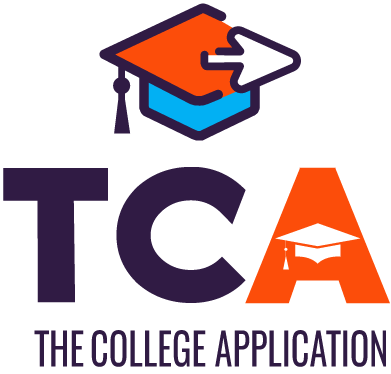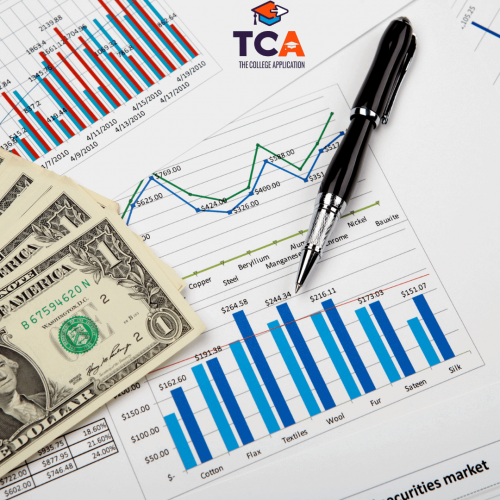An Intro- The Best Books on Economics and Finance
This article lists and shows reviews of the best books on economics and finance to expand your knowledge base, learn how economies work, assist you in your economics classes, or just learn about money and investing.
There’s no ranking factored in here, however, we include the best books on concepts such as microeconomics, macroeconomics, investing, finances et cetera.
We’ve also taken a different approach here by accompanying each book with independent, unbiased reviews from people who made them on Reddit and Quora- the largest discussion and Q&A sites respectively. I’ve found that contributors to these sites mostly provide authentic reviews with the goal of genuinely helping and without any commercial intent- unlike most affiliate bloggers.
Let’s dive in, shall we?
1. Freakonomics: A Rogue Economist Explores the Hidden Side of Everything

Steven D. Levitt is not your average economist. He investigates everyday mysteries, such as cheating and crime, as well as parenting and sports, and comes to conclusions that challenge conventional wisdom.
Freakonomics is a powerful collaboration between Levitt and award-winning writer and journalist Stephen J. Dubner. They set out to examine the inner workings of a gang, the truth about real estate agents, the Ku Klux Klan’s secrets, and much more.
They demonstrate, through compelling storytelling and wry insight, that economics is, at its core, the study of incentives—how people get what they want or need, especially when other people want or need the same thing.
Top Reddit Reviews of Freakonomics
Freakonomics is a good book in the way that it gives you some (quite entertaining) insight into how an economist views certain things and looks at problems. Another pretty good popular economics book is “The Undercover Economist” by Tim Harford, if you’re interested.
For the more classic stuff such as consumer choice, general equilibrium etc, Mankiw’s book will probably be a better (yet gentle) introduction to these topics (n.b. my undergrad micro was Perloff).
Maybe it’s better phrased like this: the person, whose views you get to enjoy in Freakonomics is thinking through the models introduced in Mankiw’s book. If you have the time, it maybe worthwhile to read them both.
Freakonomics is not a good introduction to economic thinking. It is a good standalone book, but it won’t teach you economics at all. It is a series of vignettes where economics is applied to different situations. Some parts of Freakonomics are based on solid published research that tries to tease out causation. It is not merely a bunch of correlational studies.Mankiw’s principles of micro (any edition) is an easy read and a good introduction to economics. I have used it at a variety of schools, ranked ~100 to ~1. Students enjoy and understand it at every institution.I second other people here in suggesting Landsburg’s Armchair Economist. I also really enjoyed Hidden Order by David Friedman. Both of these books are much more ‘economics of everyday life’ than Freakonomics.
I liked Freakanomics too but keep in mind when reading books like this that some of what is in the book is disputed by other academics in the field. The conclusions that the authors reach about abortion and crime, for example, are pretty widely disputed. There are lots of articles out there which are interesting reading after you finish the book.You should try Malcolm Gladwell next, especially The Tipping Point.
It is another book in a long line of books that will teach you to be very skeptical of statistical talk and you will be able to discern what is really being said very quickly. I thought it was interesting and I have pretty good study of statistics behind me from my College years.
The book is important for being the first to introduce behavioral economics to a general audience. But a lot of the research and conclusions the book profiled have over the years become fairly common knowledge (Why drug dealers, if they make so much money, live with their mothers? Why the crime rate in big American cities dropped so sharply in the 1990s? Is a gun or a swimming pool more dangerous in a suburban home?) If you don’t know the answers behavioral economists have come to on those questions you might want to read the book. If you do know, it might be a waste of your time.
The more recent work Levitt and Dubner have done seems to have veered away from this strict focus on research and experiments by behavioural economists more toward Malcolm Gladwell sort of stuff.
It’s a good book in that it teaches people about what economics really is which is a study of scarce goods. And it helps you realize that you can’t assume too much about why something happens. Some of the data is now out of date and the methodological rigor wasn’t always there but if you want a quirky introduction to some of the major concepts that are more interesting than what economists usually talk about then its worth it.
It’s fine for what it is, which is kind of an introductory survey of a different side of economics (though not really presented in a methodical way). Very easy to breeze through and pick up a few party anecdotes.
– u/rmric0
Top Quora Reviews of Freakonomics
I’m a big fan of the book Freakonomics, the sequel Superfreakonomics, and the Freakonomics podcast. It is very hard to find honest, objective discussion about anything. Everyone seems to allow their mindless political identity, religious indoctrination, or just plain old ignorance to control their views on almost every topic.Levitt and Dubner bypass all that nonsense by looking at issues from the perspective of economics – not finances – but numbers. They ask – what do the numbers really say? The numbers, frequently, reveal that “common sense” is baseless.Take this, for example. Environmentalists often encourage us to buy our foods from local sources. They say it is good for the environment. The “common sense” rationalization being that buying tomatoes from 10 miles away uses less energy and pollutes less than having those tomatoes transported 3000 miles. Sounds reasonable, doesn’t it? But what do the numbers say?The numbers say that only 11% of the energy cost of food is due to the transportation. 89% is from the actual farming. Large farms are more efficient than small farms – so buying your tomatoes from a mega-farm 3000 miles away could very well be better for the environment than buying them from a local small farm. There are other reasons to buy local, such as supporting your community and harvesting when ripe, but the point is that we are often presented with “truths” that simply aren’t true.
The book was a great supplement to a course I was taking, called Statistical Data Analysis. The course dealt with using different tools for analyzing sociological, political and economics datasets and inferring some interesting conclusions. The concept of the course was similar to that of the book, but the major difference was that we were presented with the data, told exactly what to look for, and of course advised to apply the tools we have learnt in the previous lectures.
I really enjoyed the book as it introduced me to a different perspective and influenced my critical thinking in a good way. Particularly with respect to the conventional wisdom we are presented in our everyday lives.
Throughout the book it seemed like the authors were talking to the data, which in turn made the story and the conclusions flow naturally. The book also didn’t lack communication with the reader, as we were constantly teased and pushed to make our own assumptions and draw our own conclusions.
I like how in the Explanatory note, the author Steven Levitt mentions that he just doesn’t know very much about the field of economics, is not particularly good at math, econometrics or theory, but he is simply interested in the riddles of everyday life as a curious explorer. The reader can anticipate a friendly atmosphere and a light and interesting read from the beginning.
I also appreciate how the authors emphasize the importance of fact checking. They disprove some of the modern misconceptions due to falsely interpreting the data, e.g. false cause-effect inference, disregarding incentives, not controlling for other effects, etc.
I would definitely recommend the book to everyone who would like to experience a fresh view of the world, get a glimpse of economics from a different perspective and really enjoy the intriguing topics written in a natural flow. I would especially recommended the book to students who did an introductory economics/data analysis/econometrics course, since the book shows you the interesting questions you can ask and answer using the (boring) tools learned in the courses.
If you are a beginner in the subject or had been for too long in the subject, this book is a good read. For beginners it broadens the spectrum of your thoughts and gives you variable angles to analyze and view while in case of those who had been there for too long, this brings new approach and thought process challenging the stereotype approach.
2. Best Classic Economics Books of All Time: The Wealth of Nations (Bantam Classics)
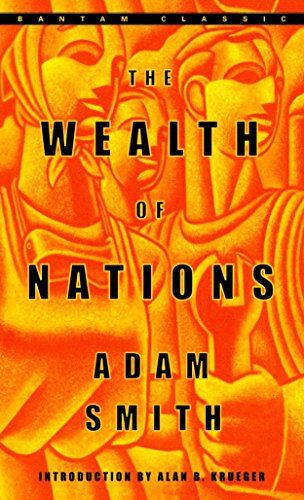
The Wealth of Nations, Adam Smith’s masterpiece of economic analysis, was first published in 1776, the same year as the Declaration of Independence- Quite symbolic, yes?
Smith glorified the simple yet enlightened notion that individuals are fully capable of setting and regulating prices for their own goods and services. He argued vehemently in favor of free trade while also advocating for the little guy. The Wealth of Nations was the first—and still the most eloquent—integrated description of how a market economy works.
Smith’s efforts yielded a witty, highly readable work of genius filled with prescient theories that serve as the foundation of a thriving capitalist system. This unabridged edition provides the modern reader with a fresh perspective on a timeless and seminal work that revolutionized the way governments and individuals view the creation and distribution of wealth—and that continues to have an impact on our economy to this day.
Top Reddit Reviews of The Wealth of Nations
The problem is too few people actually read his work and even fewer understand it, too many simply lionise him as one of the “founders” of “capitalism”; whereas, in fact, a closer reading shows him to be a critic of the contemporary capitalism of his day (mercantilism) and, at most, equivocal on, for example, the division of labour etc.
He was in favour of free markets, but questioned actually existing capitalism and would continue to do so if he were still around – given it’s still the case that markets are hopelessly unfree, and a majority of those claiming to advocate for them are closet (or not so closet) corporate-welfarists in favour of pseudo-privatisation to a pseudo-private sector which is really a form of parasitism. A good example of this would be the work coming out of the ironically named Adam Smith Institute.
Instead of quoting everyone saying that reading this, or any old work, is pointless I’ll just post this instead.
If you’re interested in economics, or anything for that matter, it’s important to learn and read the history of it. The Wealth of Nations is an important part of the literature of economics, you should read it just as you should read Ricardo, Say, Marshall, Bentham, J.S. Mill, and so many others. Learning the history of economic thought is important.
During Smith’s time, kings sought to accumulate ‘stuff’. So if the King of Spain has 100 pounds of gold (or other precious goods), and the King of England had 101 pounds, then England was richer. Prevailing thought did not consider ‘opportunity costs’. [e.g., It took 1000 men to accumulate the gold, when they could have produced other products that were worth far more than the gold they collected.]
Smith argued that it is the combination of labor and capital that produces wealth, not the accumulation of commodities.
The “Wealth of Nations”, therefore, is the combined potential of the intelligence, ingenuity, and industriousness of its people.
Wealth of Nations can be pretty hard to read, as that was Smith’s style. But you should probably take the time, just to see where all of Smith’s thinking was. So then when you see people canonizing Smith today, you can tell that they never actually read Smith themselves.
Disclaimer: I’m one student at one Uni, doing two BA’s, my view on this is a bit limited.The answer: Not very relevant. The basics of Wealth of Nations is taught as it is the basics of economics. His moral and political philosophy are researched academically but dont appear in most university courses. His work on economics mostly discussing things like free markets, division of labor, extent of the market and relation to division of labor and some other things like home bias.These topics are covered in most econ-history and econ courses but sometimes not through the lens of Smith but tied into things like labor, technology or different types of markets.
Top Quora Reviews of The Wealth of Nations
It is a foundational work of political philosophy and political economy, and it is an influential though now very outdated work of economics. If you have an interest in later economists or theorists of political economy (Ricardo, Marx, Hayek, etc.), they are all in some way building off of the ideas of Adam Smith.
If you are someone who invests “free markets” with some sort of totemic significance, I think actually reading Smith is a useful corrective. He’s writing at a time when “capitalism” (as, somewhat ironically, later socialist thinkers would deem the system) was just developing, so he doesn’t have quite the ideological investment in the system that later folks would.
Here’s Smith on taxation, for example:
“The necessaries of life occasion the great expense of the poor. They find it difficult to get food, and the greater part of their little revenue is spent in getting it. The luxuries and vanities of life occasion the principal expense of the rich, and a magnificent house embellishes and sets off to the best advantage all the other luxuries and vanities which they possess. A tax upon house-rents, therefore, would in general fall heaviest upon the rich; and in this sort of inequality there would not, perhaps, be anything very unreasonable. It is not very unreasonable that the rich should contribute to the public expense, not only in proportion to their revenue, but something more than in that proportion.“
Now, that approach to taxation would obviously lead modern Republicans to refer to him as “radical leftist Adam Smith,” but this is actually what Adam Smith thought about the issue of taxing the rich. Marx was actually quite a big fan, and in many ways saw him as essentially building off of what Smith had done.
If you are interested in political economy, I would say it is essential reading.
You may be surprised at what you read as Adam Smith is quite misunderstood on both the Right and left. It turns out, he is far from the cekebratory (sic) herald of capitalism he has been potrayed (sic) as.
Smith is a subtle and quite critical, nuanced thinker. His views are rather more interesting than the cartoony notion of the “invisible hand” that he is generally known for.
Because I’m a historian of economic thought focusing on 18th C. Scottish banking institutions. Smith is kinda relevant, particularly when he was (unofficially) involved in the aftermath of the 1772 credit crisis, his pupil Henry Scott became the Governor of the Royal Bank of Scotland for 35 years, and his theories had the attention of most every Whig and Tory in Parliament.
Everything in economics post-1776 has been variously Smithian, anti-Smithian, but nothing has been non-Smithian. It helps my work to be able to read a publication and know where Smith is being used, and where he’s being departed from.
Why do you need to read WN?
You probably don’t, frankly.
Don’t get me wrong: George Stigler was correct that at some point every sentence in WN will have become the basis for a PhD dissertation. There’s so much in there it’s hard to understate it.
But WN is also Smith’s attempt to grapple with some practical issues of governance related to 18th Century Britain. You probably aren’t going to be interested in the Corn Laws. You certainly don’t care about variations in the price of coined silver. Most of the book will be lost to the lay reader today simply because you lack the political context in which Smith was writing.
If, however, you’ve decided to give Smith a try — and he is an excellent wordsmith — start with Book 1, Chapters 1, 2, 3, and 10. Digest that, and put the book down for a month. If you really really want more, then go back for more. But don’t say I didn’t warn you.
Adam Smith launched the modern science of economics, but there are many books containing the advances since Smith wrote. Starting the study of economics with Wealth of Nations would be like learning physics starting with Newton’s Principia Mathematica (Mathematical Principles of Natural Philosophy). Neither are up-to-date and both contain many errors.
Once one is well-versed in Economics, at least through Samuelson, Smith’s work is valuable if you are interested in the history of economic thinking or want to discover what all the fuss is about. Smith’s work was monumental because of what it started but is wrong in many areas – much has been learned in the last 240 years. I read and enjoyed Wealth, but I had taken 8 university economics courses and read thousands of pages before tackling it. Some of Smith’s discussions (the role of capital, for example) are timeless and have not been improved upon.
3. Best Intermediate Macroeconomics Textbook: Macroeconomics by Mankiw
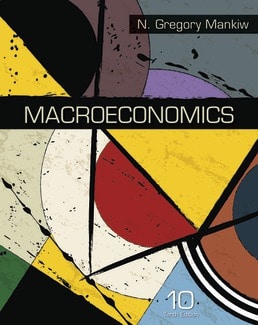
Since the first edition, Mankiw’s Macroeconomics has been the most popular book for the intermediate macroeconomics course. It maintains its best-seller status by bringing cutting-edge macroeconomic theory, research, and policy to the classroom on a regular basis, breaking down complex concepts with unparalleled clarity.
This new edition is no exception, with Mankiw streamlining his signature approach and adding new and powerful digital learning options, all while improving the book’s already excellent focus on teaching students to apply macroeconomic analytical tools to current events and policies.
Top Reddit Reviews of Mankiw’s Macroeconomics
Mankiw’s macro book is great for getting the intuition, which IMO is an important part of macro.
I can’t understand why you were downvoted. I thought Mankiw was excellent, and just as there shouldn’t be anything political at such an early level, there wasn’t. I don’t think anyone can really grasp much of the forefront of research without first understanding the fundamental models as laid out in Mankiw.
– u/rz2000
Mankiw’s macro books are easy to understand which is great for novice level classes. I had his books for intro and intermediate.
Well then it’s easier haha just move on to Mankiw’s Macroeconomics, not Principles of Macro, confusingly Macroeconomics is not labeled as “intermediate” on the cover but it is at a gentle intermediate level. If you liked principles you’ll enjoy it, intermediate is where things get interesting!
Mankiw’s Macroeconomics, not to be confused with his Principles, is quite good
– u/mkhlee
Top Quora Review of Mankiw’s Macroeconomics
It is one of the best books to study Macroeconomics. This is one of the best textbooks I’ve had the pleasure of reading. The thing that makes this book good is that the author does not fill the pages with meaningless jargon and unnecessary filler.
He often dives right into the topic or sets it up by telling a short story that is relevant to the topic. Any kind of math in the topics are written in an easy to understand step by step process. He also provides graphs on many of these topics so you can clearly see what he is talking about, these graphs are accompanied with a short summary containing the important concepts.
I’m biased, as that’s the book I studied with… but Mankiw’s comprehensive textbook on Macroeconomics is the one I’d recommend (it is probably also the most popular textbook on Macroeconomics out there; therefore, I doubt there is anything original about my recommendation here).
I personally found it to be well written, logically organized, easy to follow, and filled with relevant examples.
…The standard macroeconomics textbook, Mankiw’s Macroeconomics 8th edition does a really good job of expanding upon the basic macro models you’ve already learned and doing so in a sort-of-quantitative way. With this textbook you’ll go beyond just knowing general concepts. You won’t be a full fledged economists just yet, but you’ll be well on your way…
4. Best Introductory Economics Textbook: Principles of Microeconomics
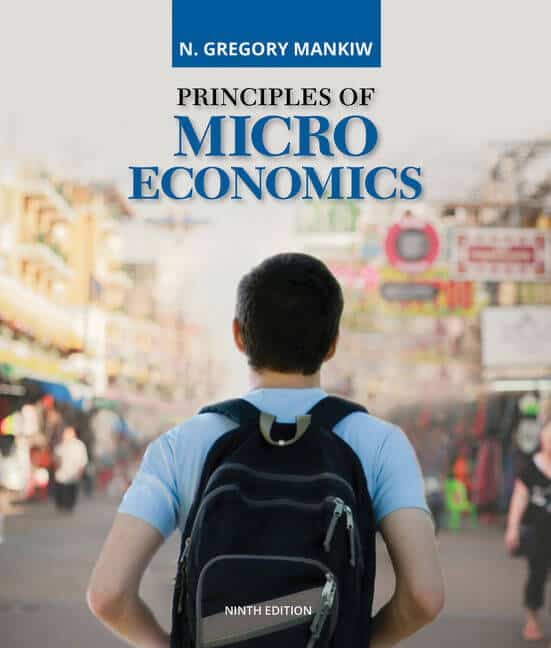
You can now master the principles of microeconomics with the help of Mankiw’s Principles of Microeconomics, 9E, the most popular economics textbook trusted by students worldwide. This book emphasizes only the material that helps you better understand the world and economy in which you live, using a clear, inviting writing style.
You will learn to become a more intelligent and thoughtful participant in today’s economy, with a solid understanding of both the scope and depth of economic policy. Microeconomic principles are brought to life by the most recent relevant examples. “I have tried to put myself in the position of someone seeing economics for the first time. My goal is to emphasize the material that students should and do find interesting about the study of the economy,” acclaimed author Gregory Mankiw explains.
MindTap, a powerful student-focused digital resource, is available and sold separately. Its digital learning and homework solutions supplement the concepts presented in this edition.
Top Reddit Reviews of Mankiw’s Principles of Microeconomics
Mankiw’s textbook is likely the most widely used out there (at least in the US/Canada). I learned from his introductory micro and macro textbooks. They’ll be just fine for you to learn the intro material from.
Randomly came over this post by googling “microeconomic reddit”. Just want to share some thoughts and observations:
First, I know this textbook well, and my thoughts are: well its pretty good!
Econ textbooks, undergrad textbooks in particular, are, at least how I see it, politically neutral. Yes, they state the benefits of the free market, but also emphasize the underlying assumptions (which can be close enough in some instances, far off in others).
When it comes to textbooks, I find it quite ridiculous to base your opinion of the textbook based on WHO the author is. I’m familiar with into-microeconomics books by Stiglitz and Krugman as well, economists far left from Mankiw on the political spectrum, and those books are more or less identical to Mankiw’s.
Lastly, microeconomics does not equal neoliberalism (as someone here claims). Microeconomics primarily studies two things:
- The allocation of scarce resources
- Incentives
If you want to criticize, criticize the underlying assumptions, not the field itself. There are great economists all over the political spectrum.
Might I suggest reading Mankiew’s Principles of Economics? You might learn why fiat currency and central banking are so widely supported by economists. You then might be able to more clearly see the flaws that crypto has as a currency.
Principles of Microeconomics by Mankiw. It’s definitely geared towards a Sophmore [sic] in college so it has a lot of fluff, but pretty easy to read and covers the basics of microeconomics. The downside is that it is expensive.
Top Quora Reviews of Mankiw’s Principles of Microeconomics
Principles of Microeconomics by Greg Mankiw is a good choice if you’re looking for a textbook. If you’re looking for something much shorter (say, study-guide length), try Microeconomics as a Second Language by Martha Olney. If you want something that has a more Freakonomics style to it, try Tim Harford’s The Undercover Economist.
For a beginner, it’s hard to do better than Mankiw. His intro book is very well written and is an easy read as far as textbooks go.
For an even gentler introduction, Economics for Dummies is excellent. I’m not usually a big fan of ‘for dummies’ books, but this one is head and shoulders above the rest.
Gregory Mankiw’s Principle of Economics is a good text but has a noticeable leaning. His text was the first I used and I found it fairly useful in learning basic economic principles. It gave a relatively thorough description of some microeconomic concepts, but led me to be confused about how things like welfare and efficiency come into play when it’s not really sensible to add together every participant’s “dollar surplus” because for me a $10 consumer surplus means a completely different thing than a $10 consumer surplus for someone in poverty. The book led me to have fairly anti-government views that I later on recognized to be myopic. So ultimately, while it would make a good complement to a more balanced text, I would not recommend it as the primary source.
Instead, you should use Uncle Ben (Ben Bernanke)’s Principle of Economics (yes, basically all economics textbooks share the same title). I used it during a class taught by Christina Romer. I feel that it gave a much more balanced account of economics, and covered microeconomics and macroeconomics with more balance. In addition, it has many great examples (excerpts from the Economic Naturalist) that built intuition. I believe that the textbook (and those intuition-building excerpts) is the foundation of my economics studies. In addition, the financial crisis was just starting when the class began, so it provided great insight into the measures that Bernanke’s team took to deal with the crisis. I found the context to be extremely helpful.
So in short, you should start with Bernanke’s text if you’re a beginner (I assumed that given your request for an introductory text), and once you have a stronger economic intuition, you can see what authors with different viewpoints think, so you can think critically about their opinions rather than accept them at face value.
Good luck! Economics is fun 🙂
I used Principle of Economics by N. Gregory Mankiw to teach myself introductory economics when I was a total pre-college newbie to economics. It describes the basics of economics clearly, is reasonably comprehensive and is a very easy read.
One textbook I would not recommend is Economics by Michael Parkin.This is the text I used for my actual introductory economics course at college. I thought its explanations were much less clear, and I often found myself returning to Mankiw’s text to get a better explanation of the material covered in class.
Unfortunately, I have not seen Samuelson’s book, so I can’t compare either of these books to his.
5. Macroeconomics by Blanchard
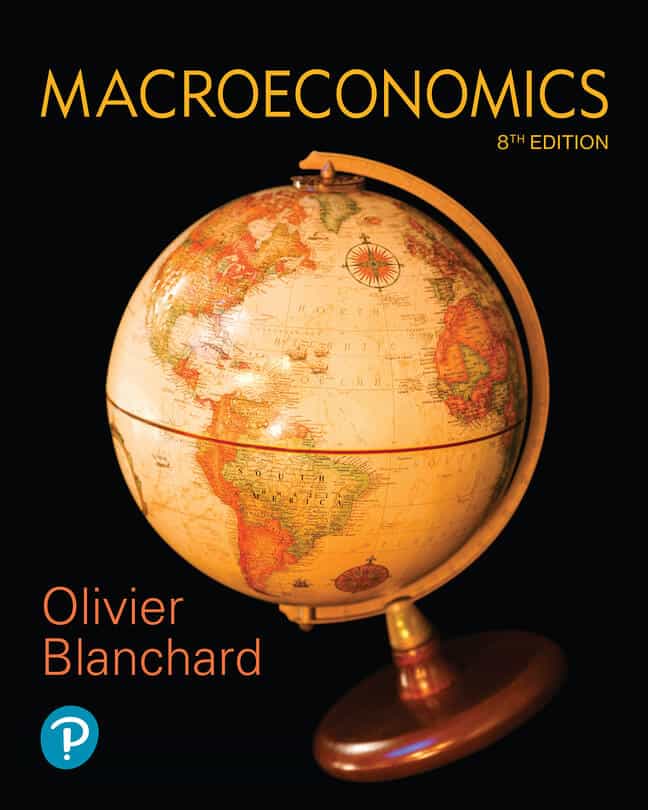
Blanchard presents an integrated, global view of macroeconomics, allowing you to see the connections between goods markets, financial markets, and labor markets around the world.
The text is divided into two sections: a core section that focuses on short-, medium-, and long-run markets, and two major extensions that provide more in-depth coverage of the issues at hand.
From the global economic crisis that engulfed the world in the late 2000s to monetary policy in the United States, Eurozone problems, and Chinese growth, the text assists you to make sense not only of current macroeconomic events but also of those that may occur in the future.
Top Reddit Reviews of Olivier Blanchard’s Macroeconomics
Olivier and Blanchard’s Lectures on Macroeconomics is pretty accessible. I read it hand-in-hand with Romer’s Advanced Macro, and it’s my go-to reference now, albeit I have a pretty targeted scope.
Macroeconomics by Olivier Blanchard, if macro is what you are looking for. I really enjoyed this book as an undergrad. Very clear and well-written.
Are you after textbooks are regular books? Be aware that there’s a trade-off between more ‘up to date, accurate’ descriptions of macroeconomics and being more easy to read and understand for a beginner. Also worth noting that accurate is a subjective term in a field with dissenting views.
All that being said, if you’re after a textbook I’d recommend Blanchard, Amighini and Giavazzi – Macroeconomics in a European Perspective pretty much entirely as it was my first undergrad textbook, and I found it really readable and is a good introduction to the basics of macroeconomics and demand management. Blanchard was previously chief economist at the IMF, and is generally well respected in the field.
– u/rnisto
Top Quora Reviews of Olivier Blanchard’s Macroeconomics
Macroeconomics by Olivier J. Blanchard: This text was designed for courses in intermediate macroeconomics. Its fundamental goals are to provide an integrated view of macroeconomics, and to make close contact with current macroeconomic events.
If there is one go-to book that is lucid, relevant and makes perfect sense all-throughout without making you confused, it’s going to be this one: Macroeconomics by Olivier Blanchard.
We went through 3 textbooks during undergrad: Mankiw, Dornbusch & Blanchard, and in my opinion, Blanchard was the best.
He explains things very simply. The nomenclature in the graphics doesn’t leave you confused. The topics are segmented well and interconnected in a very lucid manner.
If you need to understand Macroeconomics, Blanchard’s textbook is the perfect one.
Blanchard has a really good Macroeconomocs (sic) book. I used the one called Macroeconomics: a European perspective. It is really good in the sense that it shows you from where everything is derived from, so you actually understand and learn rather than memorise formulas and theories.
A lot of the stuff you are reading are more philosophical/ historical so if that is what you are interested in then the works you’ve mentioned should be sufficient. However some of these texts I sometimes find a bit boring for my liking, so if that happens to you you can YouTube discussions on the topics.
I would elaborate on anything you don’t understand using YouTube. There are so many videos that explain macro theories so well and put ideas in simple terms. Also, there are many macro lectures from universities that are posted online so I would also check those out.
6. Macroeconomics by Krugman & Wells
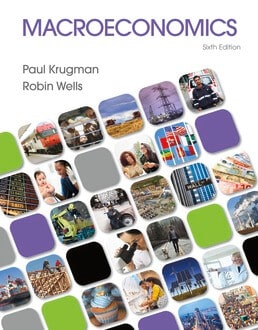
This book is extremely effective at assisting students to reach new levels of economic comprehension.
There is no one more effective than Nobel laureate and New York Times columnist Paul Krugman and co-author Robin Wells at discussing important macroeconomic principles by drawing on present economic issues and events.
Krugman and Wells’ signature narration style and uncanny eye for revealing examples help readers understand how economic concepts function in our world.
The sixth edition has been revised and improved throughout, with new insights into market power and externalities in microeconomics, as well as an updated analysis of long-run growth. Furthermore, the text covers the economic consequences and policy responses to the coronavirus pandemic in macroeconomics.
Top Reddit Reviews of Macroeconomics by Krugman and Wells
I was really happy with my macroeconomics textbook by Paul Krugman and Robin Wells. It was a good introduction to the subject. You can buy a used copy here.
Top Quora Reviews of Macroeconomics by Krugman and Wells
Macroeconomics by Paul Krugman/Wells takes a story-driven approach that focuses on real-world economics at work. The book offers the hallmark clarity and engaging writing style that distinguish Paul Krugman’s work, from his best-selling international economics text to his New York Times best-sellers.
I am an economics major at Princeton University. Here are the textbooks that my professors assigned for my introductory macroeconomics and microeconomics classes- Mankiw’s Principles of Microeconomics, Macroeconomics by Krugman and Wells, and Macroeconomics: Principles and Policy by William J. Baumol and Alan S. Blinder. The books are user-friendly and thorough with concepts. The one downside is that as they are textbooks, they’re pretty expensive.
See if you can borrow them at a local library, or try buying second-hand or international versions. Those are much cheaper (the paper isn’t as “glossy”, which keeps the price low) and cover the exact same material. Amazon is a good place to start…
7. Best Advanced Macroeconomics Textbook: Recursive Macroeconomic Theory
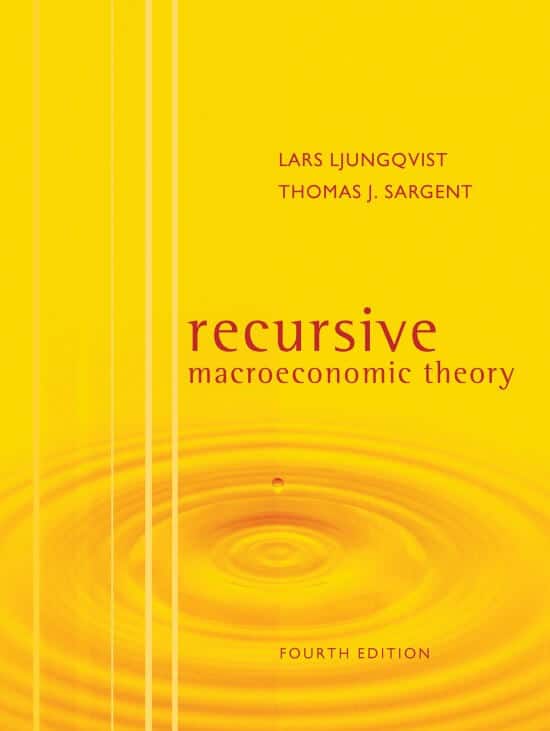
Recursive methods provide powerful ways to pose and solve problems in dynamic macroeconomics. Recursive Macroeconomic Theory includes both introductory and advanced material on recursive methods. Because only practice in solving diverse problems fully conveys the benefits of the recursive approach, the book includes numerous applications. This 4th edition includes two new chapters as well as significant revisions to existing ones that demonstrate the power of recursive methods.
One new chapter applies the recursive approach to Ramsey taxation and sharply characterizes optimal policies’ time inconsistency. These insights are used to simplify recursive formulations of Ramsey plans and credible government policies in subsequent chapters. The second new chapter investigates the mechanics of matching models and identifies a common channel through which productivity shocks are amplified across a wide range of matching models.
Other chapters have been updated and expanded. There is new material on heterogeneous beliefs in both complete and incomplete market models, for example, and a more detailed account of the forces that shape aggregate labor supply elasticities in lifecycle models.
The book is appropriate for PhD-level macroeconomics courses. Most chapters end with exercises; many of the exercises and examples make use of the computer programming languages Matlab or Python.
Top Reddit Reviews of the Recursive Macroeconomic Theory book
I think Recursive Macroeconomic Theory by Ljungqvist and Sargent is a very good book about these topics. It greatly helped me understand the intuition behind the maths, which can seem very unapproachable sometimes.
For example, for the transversality condition it shows that in the last period of a finite-horizon optimisation assets should be zero, as there is no incentive in not consuming everything you have since the world ends the day after, so there is no point in saving.
Then it shows that the infinite-horizon model is the same as the finite-horizion model but with the limit of T to infinity, and that the condition you have in the finite-horizon case becomes the transversality condition in the limit.
Romer’s Advanced Macroeconomics is a pretty standard textbook that I bet you’ll find in any future macro course you take. I think it’s pretty clear and understandable.
For more mathematically heavy macro and Dynamic Stochastic General Equilibirum models, you should go for Ljunqvist & Sargent (Recursive Macroeconomic Theory) and/or Stokey, Lucas & Prescott. I know that at least in the former you have programming exercises and probably in the latter as well.
I think those are all very well known textbooks from very well known authors and they should fit what you’re asking for.
…Macroeconomics tends to deal with the aggregate effects in economy. What’s going on with the interest rate/price level, what is the aggregate level of income inside the economy, what is the average level of welfare for a person. For example a model I did in my third year macro unit was the central banks problem of setting the interest rate to help optimise an objective of the bank. Basically the bank has a target interest rate and target level of output, then it models the effects in the economy (which direction the forces are on inflation and output, given any output gaps and the interest rate) and sets the interest rate to minimise the weighted sum of difference from target inflation and target output. Looking back it was very much an optimal control problem in disguise.
From what I have been able to gather (I have managed a postgrad micro unit during undegrad but not macro) most of modern day macro models are built up using dynamic programming methods (I just took a course on calculus of variations with a large chunk on optimal control theory which was awesome, I love it). If you want to learn more about that go look at Recursive Macroeconomics…
The standard grad school text these days for dynamic macro is Ljungqvist & Sargent’s Recursive Macroeconomic Theory…
To add on. If you have a lot of math and are a bit of a masochist Sargent and Ljungqvist is the phd level standard.
Yeah macroeconomics is a very chaotic field right now and it can be very overwhelming, especially when you are first starting out. If you are interested in DSGE (Dynamic Stochastic General Equilibrium Modeling) and have a decent mathematics background, this book Recursive Macroeconomic Theory is a good starting point.
I would also add that you should ask your professors for input. They are usually very supportive and will help give you research ideas as well as to refine them.
Top Quora Reviews of the Recursive Macroeconomic Theory book
…For macro, you’re going to get up close and personal with either Recursive Macroeconomic Theory by Sargent and Ljungqvist, or Recursive Methods in Macroeconomic Dynamics by Stokey, Lucas, and Prescott. However, since you are asking this question, you are presumably not currently a graduate student. Unless you plan to attend a PhD program in economics, do not bother with those books. They are entirely focused on the mathematical tools necessary to do modern macroeconomics, and not something that is likely to interest anyone who is not going to be an active researcher.
…Keep in mind that I don’t do macro myself and was never very interested in it, so it was enough for me. If you’re into macro and want something a bit more advanced, look into Recursive Macroeconomic Theory by Ljungqvist and Sargent…
8. Best Intermediate Macroeconomics Textbook: Advanced Macroeconomics by David Romer
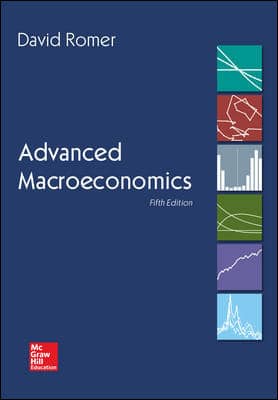
The 5th edition of Romer’s Advanced Macroeconomics maintains its status as the standard text and starting point for graduate macroeconomics courses, as well as laying the groundwork for students to begin conducting research in macroeconomics and monetary economics.
Romer discusses the major theories pertaining to the central issues of macroeconomics. Examples of relevant empirical work are used to supplement the theoretical analysis, demonstrating how theories can be applied and tested.
Formal models are used to present and analyze key ideas and issues ranging from economic growth and short-run fluctuations to the natural rate of unemployment and monetary policy.
Top Reddit Reviews of Romer’s Advanced Macroeconomics
Romer is probably the best test to go with for an ambitious undergrad. It’s technical enough to get a flavor of graduate level macro but accesiable (sic) enough to actually be doable. Sargent and Ljunqvist is the PhD level standard but is dense and isn’t really suited to self study right out of undergrad.
Romer’s Advanced Macroeconomics is a good advanced macro text. It more-or-less parallels Whitta-Jacobsen’s book, with some differences in detail and topics covered. It’s well-written.
Recursive Macroeconomic Theory is a very high level book. It is useful, but I would not suggest diving straight in to it. Instead, I would recommend Advanced Macroeconomics by David Romer. It is more accessible and serves as a good bridge between undergraduate and more high level books like RMT. It covers much of the same models and material and so serves as excellent preparation. It is also perhaps better suited for self-study, which it sounds like you are looking for.
…David Romer, Advanced Macroeconomics Romer’s Advanced Macroeconomics is used in some undergraduate programs, and some masters/graduate programs. Again, compared to standard texts, it is wanting, but does a good job of covering many of the introductory models that are used in modern economic analysis. This text requires knowledge of at least single variable integration (might require multiple in the later chapters, but when I was tutoring students with it classes never got that far), and the usual multivariate calculus…
Top Quora Reviews of Romer’s Advanced Macroeconomics
…David Romer’s Advanced Macroeconomics is considered to be the book of Macroeconomics; it’s the “bible” of most 1st year graduate school macroeconomics classes. It’s really quantitative. While Romer does a good job of intuitively explaining the manipulation he does, if you can’t follow the math, don’t bother reading. However, if you can, you’ll love it.
It covers material that was almost entirely untouched thus far. The first third takes a longer approach on growth models, the second third focuses on the business cycle, pricing, and new-Keynesian attempts to explain it all, and the last third focuses on each component of GDP in depth…
David Romer’s Advanced Macroeconomics is fairly standard and focused on the economics rather than just the mathematics which can get very difficult very fast…L&S is much more focused on methods and a subset of macro models amenable to those methods. Romer is more eclectic and focused on the economics. To be sure, it would be necessary to learn those methods to be a top-notch macro economist but I wouldn’t start with L&S.
– Alex Tabarrok (Professor of Economics, George Mason University)
9. Best PhD-level Macroeconomics Book: Recursive Methods in Economic Dynamics
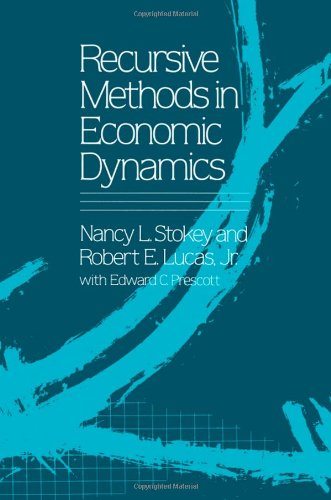
This book contains a rigorous, self-contained treatment of modern economic dynamics by three distinguished economists. Stokey, Lucas, and Prescott develop the fundamental methods of recursive analysis and emphasize the numerous applications to which they can be applied.
After providing an overview of the recursive approach, the authors develop economic applications for deterministic dynamic programming and the stability theory of first-order difference equations.
They then discuss stochastic dynamic programming and the convergence theory of discrete-time Markov processes, with additional economic applications for each.
The authors then apply their methods to a variety of economic fields. They use models of firm and industry investment, household consumption behavior, long-run growth, capital accumulation, job search, job matching, inventory behavior, asset pricing, and money demand to demonstrate how predictions about individual and social behavior can be made.
This book is essential for researchers and graduate students in many areas of economics, both theoretical and applied. It’s undoubtedly one of the best books on advanced macroeconomics.
Top Reddit Reviews of Recursive Methods in Economic Dynamics by Stokey, Lucas, and Prescott
…There’s also Recursive Methods in Economic Dynamics by Stokey, Lucas, and Prescott. It’s not a theory book; rather it covers a lot of the Dynamic Programming needed for macro…
…Macroeconomics lacks a good foundational text, in my opinion. Again, common ones are
- Stolkey (sic), Lucas, and Prescott “Recursive Methods in Economics” (basically a methods text)
- Ljungqvist and Sargent, “Recursive Macroeconomic Theory”…
Ljundqvist & Sargent (Recursive Macroeconomic Theory) alongside Stokey-Lucas-Prescott (Recursive Methods in Economic Dynamics) are pretty much the backbone of a PhD macro sequence, with SLP being a bit more technical out of those two. So something like Romer (Romer’s Advanced Macroeconomics) as a stepping stone is a good idea. This may be redundant, if your reference to Barro was Barro & Sala-i-Martin, but if not, then I highly recommend Economic Growth by – you guessed it – Barro and Sala-i-Martin, but of course that’s growth models only. Having a good handle on RCK is, however, really useful moving on to L&S.
I can speak for the PhD program…For Macroeconomics, the go to books are “Recursive Methods in Economic Dynamics” by Stokey, Lucas and Prescott (SLP) and “Recursive Macroeconomics Theory” by Sargent and Ljungqvist…
Top Quora Reviews of Recursive Methods in Economic Dynamics by Stokey, Lucas, and Prescott
The most advanced micro textbook is Microeconomic Theory by Mas-Colell, Whinston, and Greene. It is the standard graduate textbook.
Macro is going to be somewhat more controversial. I’ve never heard of the Gali textbook, but my program was very opposed to Keynesian thinking. While I’m obviously not a fully unbiased source, based on glancing at what Amazon would show me, I would argue that the Gali book is not the most advanced textbook, because the math used looks too simple. On that basis, I’d argue for Recursive Methods in Economic Dynamics by Stokey. Lucas, and Prescott.
10. Best Book on Economics and Finance from the 2008 Financial Crisis: The Big Short
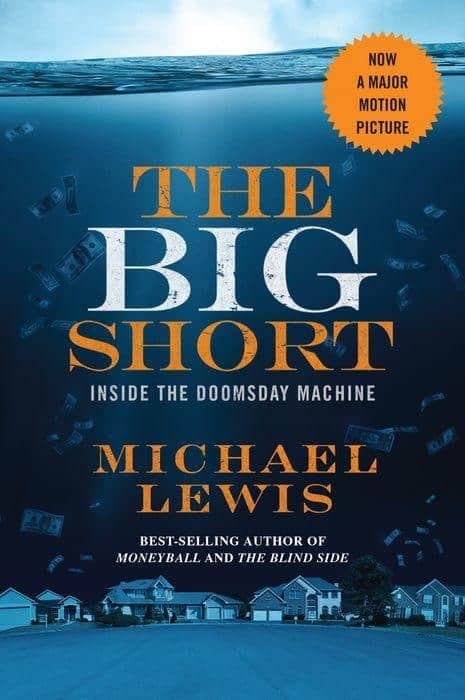
This book is about the story of four outsiders in the world of high finance who predict the credit and housing bubble collapse before anyone else.
The real story of the crash began in strange feeder markets where the sun doesn’t shine and the SEC doesn’t dare or bother to tread: the bond and real estate derivative markets, where geeks create impenetrable securities to profit from the misery of lower- and middle-class Americans who can’t pay their debts.
The bright people who understood what was or might be happening were paralyzed by hope and fear; in any case, they were silent.
Who understood the risk inherent in the assumption of ever-rising real estate prices, a risk compounded on a daily basis by the creation of those arcane, artificial securities based on piles of dubious mortgages?
Michael Lewis answers that question in this book, in a narrative brimming with indignation and dark humor.
Top Reddit Reviews of The Big Short by Michael Lewis
…Lewis in the Big Short however, managed to explain CDOs and CDSs in an easy to understand way that is more or less fair and accurate. The reader is never overloaded with concepts, and everyone I recommended the book to developed a solid basic understanding of the mechanics of these complex financial instruments.
The Big Short avoids one of the biggest pitfalls of non-fiction writing. Lewis avoided overloading the reader with an overarching comprehensive explanation. Instead, he tells a story. The main characters are introduced, and the complex ideas dribble out, little by little.
In a way, Lewis even managed to implement the ideas of show, don’t tell. Relevant details are slowly revealed to the reader, in an example of emergent storytelling, the reader is slowly exposed to the details following the same timeline as the characters. You don’t know what they don’t know (yet).
If you ever listened to the news anchor mention things like collateral debt obligations, tail risk, or other economics concepts and want to learn what they actually mean, there are few books better than The Big Short for the layman. Even if you aren’t, the Big Short is still a worthy read, as somehow, Lewis manages to make these arcane concepts understandable.
Loved it (The Big Short). Read it twice. I think it adds more detail that you may miss from the movie. The movie does cover the gist, but I like learning more about the people than was available in the movie.
The Big Short: Inside the doomsday machine by Michael Lewis – MUST read for anyone who wants to know how Wall Street caused this financial mess.
I am almost finished reading Michael Lewis’ book The Big Short. I’m sure most of you are aware of what it is about but if not it describes the people and companies that were behind the sub-prime mortgage fiasco and those who made huge profits by betting against it.
I thought it was a very good read, simple to get through although some of the bond/stock names and acronyms were confusing at times. I think that is on purpose though.
If you have any interest in reading about the clusterfuck that is the sub-prime mortgage market I would highly recommend it. You will learn a lot about how banks and traders play the system and create chaos out of nothing. It makes me want to stay away from investing in the market.
If anyone read it, what did you think?
– u/halo73
Top Quora Reviews of The Big Short by Michael Lewis
…So over and all, The Big Short shows us the entire crisis unraveling from the eyes of these outsiders. The characters are as fascinating as the story and you can’t help fall in love with them despite each being completely crazy and different.
I have read the Big Short and it was excellent. Couldn’t put it down. Good writing level for people who may not know all the financial terminology. I thought the use of the 5-6 key characters to tell the story of the financial collapse while also explaining the bigger picture was an nice approach. Haven’t read Too Big To Fail so I can’t comment on that.
Just started reading “The Big Short” and cannot put it down. I knew the particulars of the downfall, but the author gives the best viewpoint of those that knew it first and capitalized on it. Also, he doesn’t make any qualms about the type of personalities they are, but it absolutely fascinating to read about the minds of smart investors that capitalized if that interests you…
I loved reading the Big Short. Michael Lewis does a great job of telling the story of the financial crisis. He’s such a brilliant writer that it’s one of the few business books I’ve read that didn’t have a chapter or two of dry business language. I highly recommend it.
11. Too Big to Fail
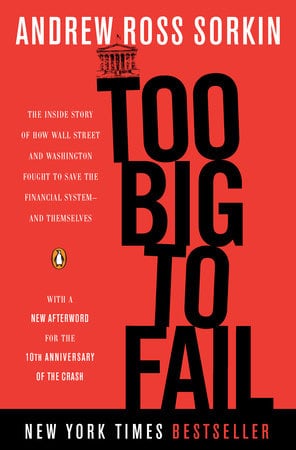
Andrew Ross Sorkin provides the first true behind-the-scenes, moment-by-moment account of how the worst financial crisis since the Great Depression became a global tsunami.
Too Big to Fail is the definitive story of the most powerful men and women in finance and politics grappling with success and failure, ego and greed, and, ultimately, the fate of the world’s economy, from inside the corner office at Lehman Brothers to secret meetings in South Korea and the corridors of Washington.
Too Big to Fail recreates all of the drama and turmoil, revealing never-before-seen details and elucidating how Wall Street decisions over the past decade sowed the seeds of the debacle. This true story is more than just a look at banks that were “too big to fail”.
It’s a real-life thriller with a cast of bold-faced names who thought they were too big to fail as well- which puts this book among the very best books on economics and finance for any reader, beginner or otherwise.
Top Reddit Reviews of Too Big to Fail
A quite interesting read if you want to know more of what was happening behind the scenes at wall street and Washington. As I was too young at the time, it gave me a bit of context on those crazy days. However the book doesn’t actually detail on why it was happening and what could’ve been done to avoid it. Do you guys know any books that give some insight into that? Thanks.
– u/J-LG
…Sorkin’s Too Big to Fail will teach you the who’s who in finance, and is a captivating read.
…What’s sad is that virtually nothing has changed to prevent the same thing from happening again. By the way if you find this topic interesting you should read Too Big To Fail
– u/midava
Top Quora Reviews of Too Big to Fail
I’ve read both, and I certainly don’t regret it. The financial sector is not my area of expertise, but I feel much better informed after reading these books. They give a good background on both the entangled government-financial sector freak out to avoid total collapse (Sorkin) and the small set of contrarians who were able to see each domino being lined up and place their bets before the first one was tipped (Lewis) — while expressing their utter amazement at how messed up the system was.
Now, if you’re looking for an easier read, go with Lewis. I’m going to have to read Sorkin’s book again before I can really say I entirely understand it. There are a lot of names, a lot of connections, and a lot of concurrent actions that are hard for an outsider to fully grasp. Sorkin doesn’t it masterfully, but there’s only so much he could do with such a complex story…
I read the book a long time ago, so the book to me is a bit muddled in my memory.
The biggest difference (between the film and the book) is the celebrity cameos explaining specific financial instruments and how they work. The book also goes a little more in depth on the inner workings of the deals and structures of how CDOs and SCDOs were made. Aside from those I will have to review the book again.
12. The Intelligent Investor
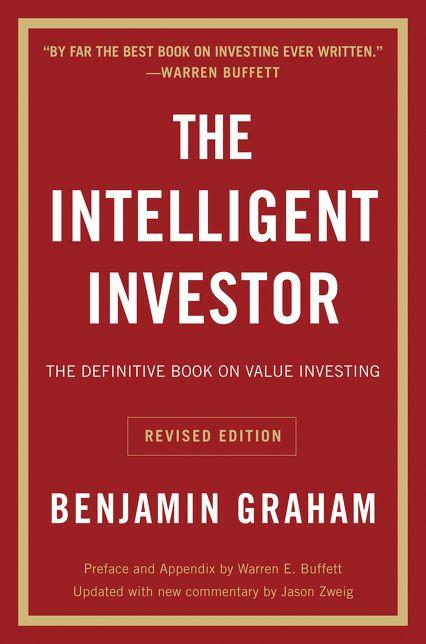
Since its initial publication in 1949, Graham’s philosophy of “value investing,” which protects investors from error and teaches them to develop long-term strategies, has made The Intelligent Investor the stock market bible.
Market developments have proven Graham’s strategies to be sound over time.
While maintaining the integrity of Graham’s original text, this revised edition includes updated commentary by noted financial journalist Jason Zweig, whose perspective incorporates today’s market realities, draws parallels between Graham’s examples and today’s financial headlines, and provides readers with a more thorough understanding of how to apply Graham’s principles.
This is one of the best books on economics and finance (and investing) that you will ever need to achieve your financial goals.
Top Reddit Reviews of The Intelligent Investor
Absolutely great book. It was my first investment book to read. And wow, talk about a long and hard one to pillow through. But once you get to the second half of the book, chapters fly by.
I believe it still works as a method whenever there is mass panic (as there was in March), but it’s a tool in the shed like many others.
For example, just going in and “buying the dip” only works with the S&P. Like Buffett says, when the tide rolls back we see who’s swimming naked. I know a lot of people who bought American Airlines because it was a “dip.” Using Ben Grahams analysis, I found American to be a godawful company with an intrinsic value of very little even before the crash, and now I believe it to be worth close to zero.
In contrast, I found McDonalds and Wendys to be excellent companies that were just overvalued. When the crash happened, McDonalds and Wendys slipped below their intrinsic, and I bought very heavily. Wendy’s has recovered and is now up 11% ytd, whereas McDonalds is slowly creeping up towards positive.
So, I think it’s the best used tool in times of mass panic. Had you used it exclusively for the past decade you’d be sitting on a lot of cash (as did Buffett). But I was investing differently before this happened, and will be investing differently after this finishes. But for now, I’m cuddling both my copies of the book: the original 1940’s one and the Jason Zweig version.
Excellent book despite its age. I always liked getting to Jason Zweig’s commentary after each chapter because he really helps to solidify Graham’s tough topics.
I just started reading this book (The Intelligent Investor) and honestly there are some incredible similarities between when it was written to where we are now (especially with the chapter-end commentary). Awesome read!
Top Quora Reviews of The Intelligent Investor
It is a great book for a beginner. There will be some concepts that you will need to look up but that’s alright. You will learn a lot. Most of it is about the way of thinking not about technical details.
Moreover, if you buy one of those versions with Jason Zweig as a co-author, it will help a lot. I found his writing style more coherent and easy-to-follow than Ben Graham’s writing style.
If you want to keep it short and sweet, read just chapters 8 and 20. Those are the most important ones.
I read it as a high school senior and I came to the U.S when I was a junior, English is my second language and I still learned a lot and had fun reading it.
Good Luck!
What makes Intelligent Investor one of the best investing books for beginners is that he talks at length about how to focus on the long-term health of a company or holding as a way to limit your risk.
Again, the idea is focusing on a long-term wealth building strategy and not chasing after short-term gains. If that’s not enough, Graham was Warren Buffett’s mentor so you know he knew a little bit about what he was talking about.
13. Capital in the Twenty-First Century
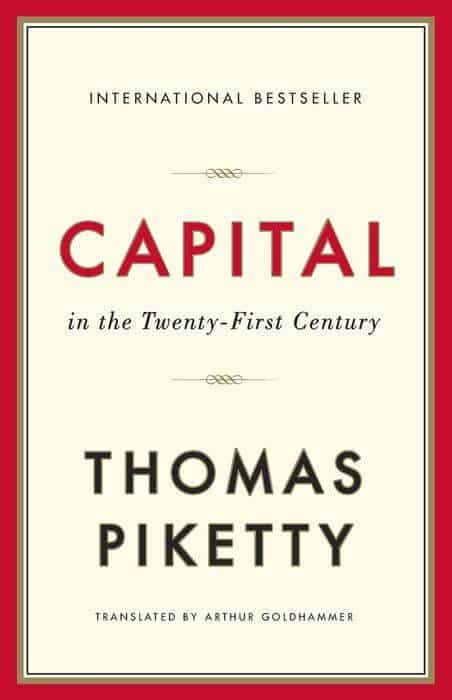
Thomas Piketty examines a unique set of data from twenty countries dating back to the eighteenth century in order to uncover key economic and social patterns.
He demonstrates that modern economic growth and the spread of knowledge have enabled us to avoid the apocalyptic inequalities predicted by Karl Marx.
However, we have not changed the deep structures of capital and inequality as much as we thought in the optimistic post-world war II decades.
Today, the main driver of inequality, the tendency of capital returns to exceed the rate of economic growth, threatens to generate extreme inequalities that stoke discontent and undermine democratic values.
Capital in the Twenty-First Century reorients our understanding of economic history while also teaching us important lessons for today. It’s one of the best books on economics to understand how economies run and also the underpinnings of modern-day finance.
Top Reddit Reviews of Capital in the Twenty-First Century
I just finished it tonight, actually. It’s incredibly interesting IMO, and very accessible even if you’ve never studied economics. He clearly defines capital, GDP, income etc. It’s long though, and I’m not sure how much more you get out of reading the book than from reading some of the better summaries on the web.
…Economics is complicated and we shouldn’t reduce it to hero worship of some past figure who “proved capitalism wrong”. A recent book that focuses on the injustices of economic inequality with a far more sophisticated treatment is Capital in the Twenty-first Century by Thomas Piketty.
– u/fathan
That Piketty book really is a fascinating read though. For those interested, it’s called ‘Capital in the Twenty-First Century”. It covers lots of basic economic tenets, and makes a good case on his global capital tax theory, which seeks to quell the issues inherent with Capitalism that give rise to an increased disparity in income and wealth distribution.
Good food for thought.
If you really want to understand why this (wealth inequality) is happening there’s a widely praised book by an economist called Thomas Piketty that summarizes it like this:
-For most of human history the returns on capital exceeded economic growth. Because of this if you had capital to invest you were pretty sure to do a lot better than if you had only your labor to give. Economic inequality was the status quo. From a recent interview with Piketty in the NYT:
“Over the 1700-2012 period, world output has grown at 1.6 percent per year on average. In contrast, rates of return on capital can be 4 to 5 percent over centuries, or even higher for risky assets and high wealth portfolios. Contrarily to what Karl Marx and other believed, there is no natural reason why rates of return should fall in the long run. According to Forbes’s global billionaires list, very top wealth holders have risen at 6 to 7 percent per year over the 1987-2013 period, i.e. more than three times faster than per capita wealth and income at the world level.”…
Top Quora Reviews of Capital in the Twenty-First Century
Here are a few of the rave reviews about Capital in the Twenty-First Century: Thomas Piketty, Arthur Goldhammer
A seminal book on the economic and social evolution of the planet… A masterpiece. (Emmanuel Todd Marianne)
The book of the season. (Telerama)
Outstanding… A political and theoretical bulldozer. (Mediapart)
An explosive argument. (Liberation)
In this magisterial work, Thomas Piketty has performed a great service to the academy and to the public. He has written a pioneering book that is at once thoughtful, measured, and provocative. The force of his case rests not on a diatribe or a political agenda, but on carefully collected and analyzed data and reasoned thought. The book should have a major impact on our discussions of contemporary inequality and its meaning for our democratic institutions and ideals. I can only marvel at Piketty’s discipline and rigor in researching and writing it. (Rakesh Khurana, Harvard Business School)
This book is not only the definitive account of the historical evolution of inequality in advanced economies, it is also a magisterial treatise on capitalism’s inherent dynamics. Piketty ends his book with a ringing call for the global taxation of capital. Whether or not you agree with him on the solution, this book presents a stark challenge for those who would like to save capitalism from itself. (Dani Rodrik, Institute for Advanced Study)
Anyone remotely interested in economics needs to read Thomas Piketty’s Capital in the 21st Century. (Matthew Yglesias Slate 2014-02-10)
The book aims to revolutionize the way people think about the economic history of the past two centuries. It may well manage the feat…It is, first and foremost, a very detailed look at 200 years’ worth of data on the distribution of income and wealth across the rich world (with some figures for large emerging markets also included). This mountain of data allows Piketty to tell a simple and compelling story…The database on which the book is built is formidable, and it is difficult to dispute his call for a new perspective on the modern economic era, whether or not one agrees with his policy recommendations… We are all used to sneering at communism because of its manifest failure to deliver the sustained rates of growth managed by market economies. But Marx’s original critique of capitalism was not that it made for lousy growth rates. It was that a rising concentration of wealth couldn’t be sustained politically. Ultimately, those of us who would like to preserve the market system need to grapple with that sort of dynamic, in the context of the worrying numbers on inequality that Piketty presents. (The Economist 2014-01-09)
Piketty, a prominent economist, explains the tendency in mature societies for wealth to concentrate in a few hands. (Amy Merrick New Yorker 2014-02-06)
What is striking about Piketty’s book is not his discovery of the increase in inequality but a clear delineation of the mechanism that creates this inequality. This is not a book based on hunches but one based on data.
I think it will have an enormous impact, particularly in this era of globalization where Ricardo’s Iron Law of Wages further drives down the value of labor while increasing the value of capital
14. Why Nations Fail: The Origins of Power, Prosperity, and Poverty
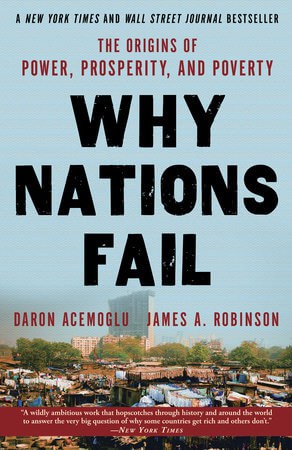
Daron Acemoglu and James Robinson demonstrate conclusively that man-made political and economic institutions underpin economic success (or lack of it).
Acemoglu and Robinson marshal extraordinary historical evidence from the Roman Empire, Mayan city-states, medieval Venice, the Soviet Union, Latin America, England, Europe, the United States, and Africa to build a new theory of political economy with great relevance for today’s big questions, including:
- China has created a growth machine based on authoritarianism. Will it continue to grow at such a rapid pace and eventually overwhelm the West?
- What is the most effective way to lift billions of people out of poverty and into prosperity? More philanthropy from the West’s wealthy nations? Or should we be learning the hard lessons of Acemoglu and Robinson’s seminal ideas on the interplay of inclusive political and economic institutions?
Being great economists themselves, this book is easily one of the best books on economics and finance that you will find.
Top Reddit Reviews of Why Nations Fail
This is a great book. I think it offers a very thorough analysis of really important factors that contribute to development. Namely the role of institutions. I thought the discussions on how institutions create situations that can lift up or pull down countries were really thought provoking.
Yes, Acemoglu and Robinson are very respected macroeconomists. Their institutional approach to development is very much respected in the governance and development field. “Why Nations Fail” is them compiling a story from many of their previous empirical works
“Why Nations Fail” was written by Daron Acemoglu and James Robinson.
I would highly recommend this book for people wondering how some nations successfully acquire wealth and prosperity, and some do not…
Top Quora Reviews of Why Nations Fail
I found the book “Why Nations Fail” to be both credible and a perfect companion to Jared Diamond’s “Collapse”. The authors worked together during their careers, and while “Why Nations Fail” sometimes contradicts “Collapse” there is enough overlap that makes it plausible that both books have something to contribute. They say the past is prologue, and in this case, I find these books are both prologues to an unfortunate future, roadmaps of misery and warfare as nations fail yet again, but on a global scale.
“Why Nations Fail” points to private property and a fair and binding legal framework as some of the main reasons that some nations rose and some fell, he gives example of England and countries in South America to illustrate the points, and I believe he is largely right. Diamond, on the other hand, points to the increasing distance between the rich and the poor and the willful ignorance of the rich to see the growing plight of the poor, while they devastate resources to sate their desires and turn to God to cynically clean up the messes they have made until external enemies or fed up, and starving citizens revolt.
In either case, both books point to a grim future for the US as the bedrock principles we depend on to keep society together are abandoned to satisfy the rapacious desires of the 1% while freeing them from the need to be bound by the law.
I recommend both books, particularly the chapters on Easter Island. We can actually see our leaders doing the same stupid things in real time.
I read it near the end of my undergrad and loved it. It’s one of a few reasons I took the path I did within the economics field, using a more political economy based approach focusing on the way institutions structure incentives to generate system level behavior.
If memory serves, it was very non-technical. This is not a criticism, as books that eschew the more formal elements of economic analysis to use case studies and metaphors to explain concepts to people who don’t have experience using formal models is really underutilized in the profession, and an important reason such large gaps exist between the public’s and economists’ understanding of the field.
Much of what it discussed came out of previous papers Acemoglu and Robinson wrote that were aimed at other economists, including detailed explanations of the empirical strategies used to draw the conclusions they do. Economists should find those much more informative and concise than reading a book aimed at non-economists, but the argument they outline in general I find persuasive. Sure, I have my doubts about the way they used things like mortality rates from 400 years ago in colonies to instrument abstract factors like “institutional structure” but I sure as hell don’t have a better research design for such a tricky problem as they were approaching.
In short, I really like and appreciate their work, but as always, trust bodies of literature, not a single book/paper.
Best book on development I’ve read.
The authors walk the very fine line between reductionistic explanations that are too simplistic to be true and unverifiable vagueness. The result is a theory that avoids historical determinism while still making real predictions about how the future of national economies will play out, many of which are contrary to the conventional wisdom.
Drawing from every region of the world and many periods of history, Acemoglu and Robinson argue with excellent detail that economic growth is prevented by concentrations of economic and political power that allow the powerholders to effectively loot the economy, undermining long-term economic growth.
While not exactly optimistic in their assessment of the future of underdeveloped countries, Acemoglu and Robinson helpfully cut away a lot of the false ideas that have long hindered the progress of those nations, leaving a clear, if difficult, path to sustained economic growth and general prosperity.
15. The Black Swan: The Impact of the Highly Improbable
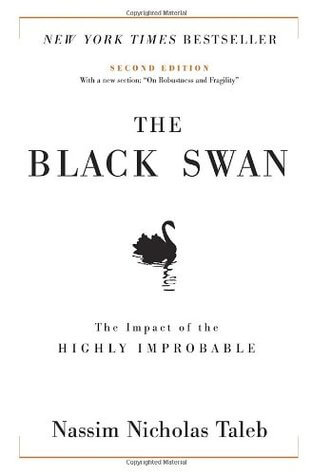
A black swan is a highly improbable event with three main characteristics: It is unpredictable; it has a massive impact; and, after the fact, we concoct an explanation that makes it appear less random and more predictable than it was. Google’s meteoric success was a black swan, as was 9/11.
According to Nassim Nicholas Taleb, black swans underpin almost everything in our world, from the rise of religions to events in our own personal lives.
Why do we not recognize the phenomenon of black swans until after it has occurred? According to Taleb, part of the answer is that humans are hardwired to learn specifics when they should be focusing on generalities.
We focus on what we already know and frequently fail to consider what we don’t know. As a result, we are unable to truly estimate opportunities, are too susceptible to the urge to simplify, narrate, and categorize, and are unwilling to reward those who can imagine the “impossible.”
Taleb has spent years researching how we delude ourselves into believing we know more than we actually do. While large events continue to surprise and shape our world, we limit our thinking to the irrelevant and insignificant.
Taleb’s revelatory book will change the way you see the world, and this second edition includes a new philosophical and empirical essay, “On Robustness and Fragility,” that offers tools for navigating and exploiting a Black Swan world.
Top Reddit Reviews of The Black Swan
I guess it’s going to be a personal decision. I loved it. Taleb is way too impressed with himself, and that made the book initially hard for me to read. However, if you can ignore his tone, the content of the book is terrific. Solid examples, well explained, with interesting consequences and implications.
It’s been a while since I read it, but I still think about the chain of events that made me who I am and how none of the most significant were ever planned for or even expected.
Hi! Let me tell you about the latest book I’ve read: the 2nd edition of “The Black Swan – The Impact of Highly Improbably Fragility,” by Nassim Nicholas Taleb. I think it’s a timely read, especially in this time of COVID-19. I enjoyed it immensely, even though it’s not the easiest book to read, as I will explain later.
A “Black Swan” has three main features. First, it is rare. Second, it is tremendously impactful. Third, it is not predictable (although we can delude ourselves into thinking we can explain it after the fact). The term comes from an ancient belief (long since disproven) that all swans are white.
COVID-19 is a Black Swan. The last pandemic, according to most news sites, is the 2009 H1N1 swine flu. However, I don’t remember the NBA getting cancelled in 2009. In fact, that’s the year Kobe won his first championship without Shaq. I also don’t remember schools closing down in 2009. In fact, that’s the year I graduated from college. So, really, the last great pandemic was the 1918 Spanish flu, which according to conservative estimates, killed 20 million people. Pandemics that paralyze the world are rare.
Aside from a few largely ignored journal articles prophesying the imminent rise of a new coronavirus epidemic, none of us saw COVID-19 coming. In fact, just a few days before the lockdown of Manila, I started investing in the stock market, blissfully unaware that the PSEi would fall to historic lows soon after.
COVID-19 is giving us a first-hand look at some of Taleb’s main points. First, we humans are all too easily lulled into complacency. Taleb uses the metaphor of the turkey. The turkey, having been fed and sheltered by the farmer for the first 100 days of its life, foolishly believes that things will remain that way forever. Imagine his surprise when his head got chopped off for Thanksgiving. Likewise, the lack of serious epidemics may have lulled all of us into a false sense of security.
Second, humans are incapable of predicting the future, yet are experts at retroactively explaining phenomena after the fact. Again, very few people saw COVID-19 coming. And yet, so many think-pieces are now popping up with their own explanations of how this pandemic was in fact, inevitable.
Third, we grossly underestimate the randomness of life. Bell curve models do not apply in real life. Economic models, which are derived from sterile premises, should not be applied to real life, which is messy. Real life does not approximate a bell curve. Outliers happen all the time, and their effects can be catastrophic.
This was the first time in a while that I took down notes while reading a non-medical book, so believe me when I say that The Black Swan covers much, much more than what I outlined above. I encourage everyone to give it a shot. However, please don’t be discouraged by Taleb’s tone. He writes like a bully, someone who will call you out mercilessly in public when he catches you doing something dumb.
Fortunately, Taleb’s prose is humorous, despite being acerbic. Despite his tone, which often borders on being condescending, Taleb is considerate enough to tell the reader which chapters we can skip (something I’ve NEVER seen before!), and even thanks the reader for giving him the time of day.
“Remember that you are a black swan,” Taleb writes at the very end. “And thank you for reading my book.”
Top Quora Reviews of The Black Swan
There have been four individuals whose work have profoundly changed the way I view the world, and Taleb’s “Fooled by Randomness” is one of those works.
This book and his “Black Swan” have given me a completely new mental model with which to view the world. Luck, chance, randomness, Black Swans, or whatever you want to call it, have had and will continue to have a more profound effect on your life, and human history, that we realize and care to admit.
In print, and on twitter, he is an abrasive character, but if you watch him on youtube, he doesn’t seem to be ( at least the ones I’ve seen).
I think he plays an important role in pointing out the foibles of ivory tower “experts” and giving credit to actual practitioners, people he considers having “skin in the game”.
Wrapping Up- Best Books on Economics and Finance
I hope you have found this list of the best books on economics and finance useful. You might find some more suitable than others. It really depends on your background (especially the macroeconomics books) and your goals.
But with the list above, you should find a favorite finance or economics book, whether as an advanced professional or as a beginner or casual reader.
Also Check:
5 Best Calculus Books for Self-Study: Top Recommendations Today
How useful is an Economics Degree- And is it worth pursuing?
The 9 Best Accounting Books for Beginners
14 Best Online MBA Programs in Texas (Researched & Reviewed)
